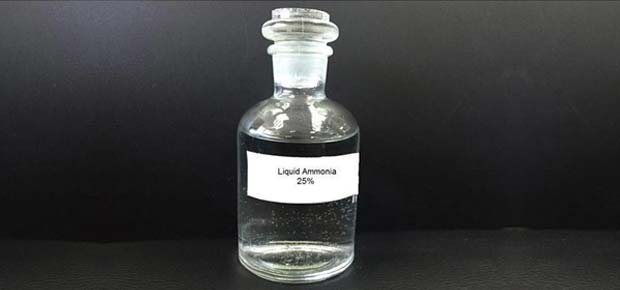Ammonia has long been a cleaning agent, which is widely used in homes, restaurants and other public locations. The product being perfectly safe to use with little precautions, it has found applications in variety of cleansing products and is used even in the form of pure or scented ammonia in the homes.
Ammonia is widely used as a base ingredient in a variety of household cleaning products like floor cleaners, glass cleaners etc. The reason for using ammonia in making these household cleaning products is that there are a very few surfaces that cannot be effectively cleaned with ammonia. The cleaning products containing ammonia can be used in their full strength and also in dilute forms by mixing them with water. For example, ammonia cleaning solution made in such a way can be effectively used to clean windows for a clear and steak-free looking room.
Ammonia cleansing products are generally viscous white-coloured ammoniated abrasive cleaners, which are designed to clean and remove stubborn dirt from hard surfaces in both the household as well as industrial applications without scratching. These products combine the powerful and effective cleaning action of ammonia and a scouring medium into a liquid hard surface cleaner, which makes it highly effective. Ammonia household cleaning products are easy to work with and deliver superior cleansing results.
Ammonia cleaning products are made using a volatile alkali, which leaves no residue after drying and hence has found uses such as in making of glass cleaners and leaning products for several other polished surfaces. These cleansing products are made using technique that uses steam, natural gas or hot coke to produce hydrogen and steam that is forced through incandescent coke to produce nitrogen. After several refinements, these gases are subjected to high pressures and temperatures.
Ammonia (NH3),occurs in the form of strong smelling gas or liquid. This alkaline substance has found high popularity for uses in consumer and commercial cleansing products to clean grime or fertilizer crops. Even in its very low concentration or dilute form, inhalation of ammonia or getting its solution on the skin can cause burning, fainting, or death, and so it should always be handled with care.
Ammonia has one nitrogen atom, which is tightly bonded with three hydrogen atoms. A tiny amount of the ammonia is formed, when the organic matter is decomposed and hence the gas can be found naturally in our atmosphere. However, most of the ammonia that we use is developed through artificial means by bonding the four atoms (1 Nitrogen + 3 Hydrogen) together by sheer force. After this, the gas can be pressurized to convert it into liquid form for easy distribuition to manufacturing plants.
As a gas, ammonia is lighter than air, and hence does not pool indoors, such as other dangerous gases like propane. As the gas has a highly distinctive and pungent odor, it is very clear and difficult to combust unless highly concentrated. The distinct smell of this gas makes it safer for household applications, as the people can easily recognize it and leave the toxic area to prevent fainting.

Ammonia has found uses in a variety of household cleaning products as well as cleaning applications for commercial places like restaurant, hotel, and office cleaning. Some of the ammonia cleaning uses include:
While using ammonia or ammonia solutions, even in dilute form, it is important to ensure that the room or area is well ventilated. Also make that, ammonia should never be mixed with other household cleansing agents, like bleach, as the resulting fumes can be highly toxic. For just about any application other than the fabric, a mixture of ammonia with a little amount of water will do the job with same effectiveness as any other commercial cleanser for a fraction of cost.
People suffering from chronic respiratory problems should not use this chemical as it fumes may cause problems, such as a burning sensation, coughing, wheezing, shortness of breath, laryngitis and watery eyes. Exposure to ammonia fumes for a long period of time may damage to liver, kidneys and lungs.

If you have decided to make soap at home, you will need soap making supplies in the form of raw materials, soap making equipment & tools ...
Read More
Someone has rightly said that clothes are not just clothes. They form an integral part of a person's personality and tell a lot about their nature and...
Read MoreCleansing products play an important role in the daily lives of people.
Both soaps and detergents are cleansing products that we frequently use in our
Soap is designed as a product to be used once and then flushed down the drain...